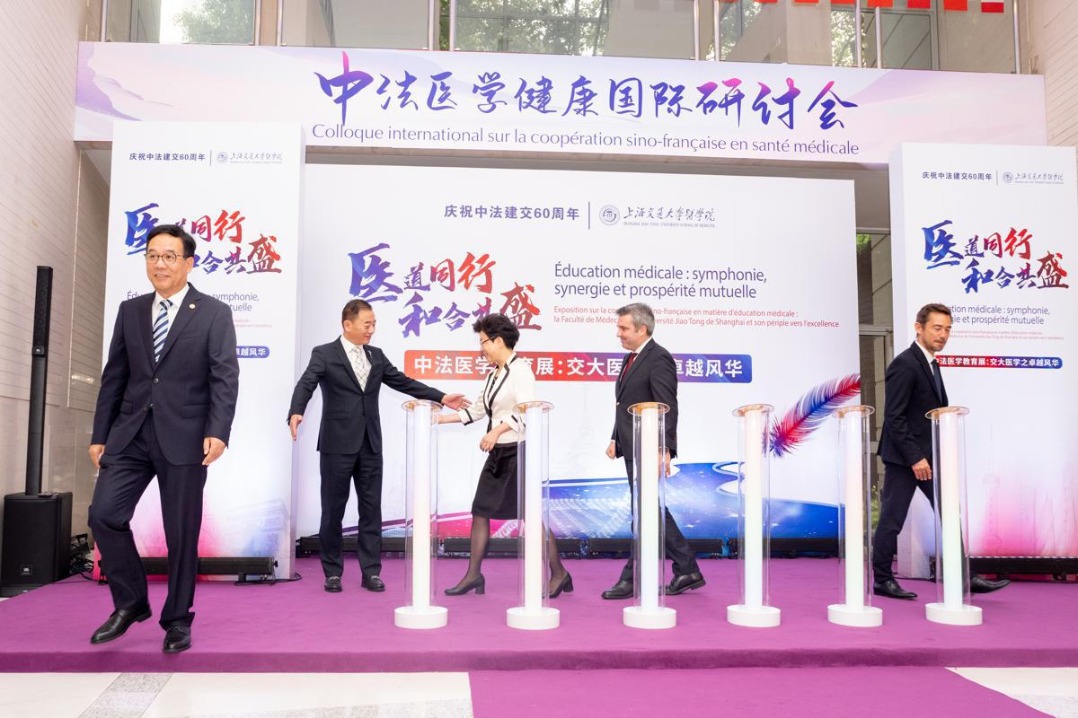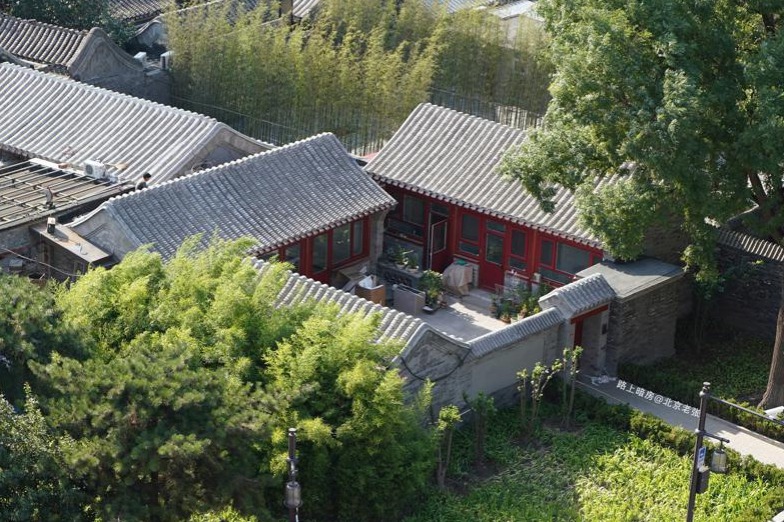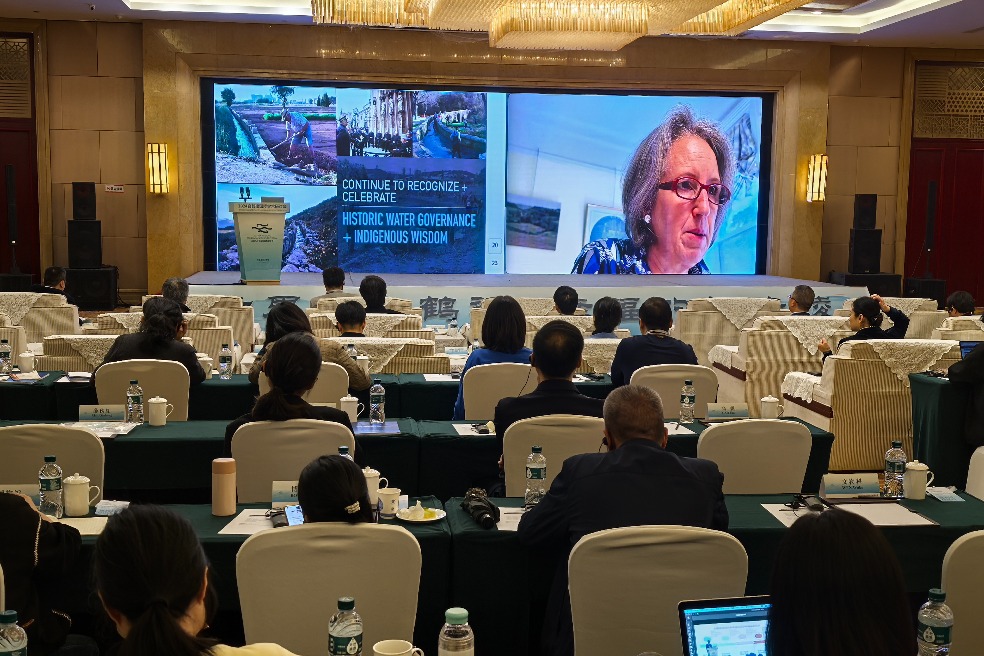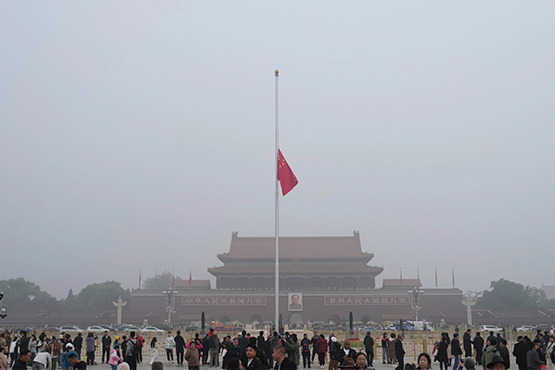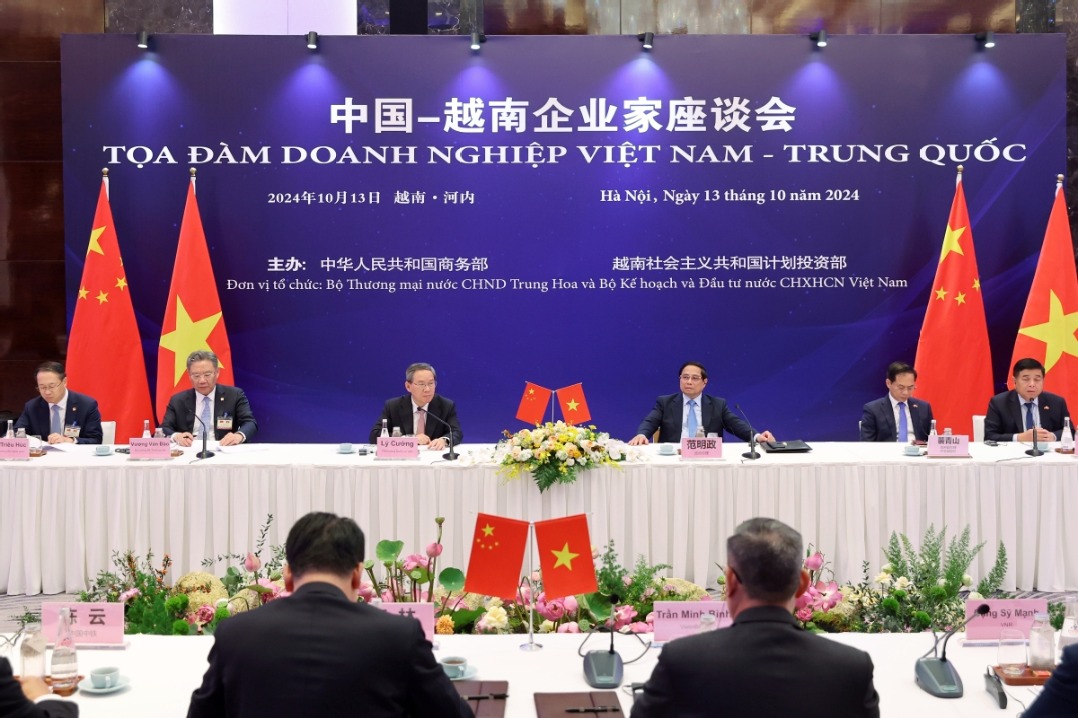Linked development puts spotlight on HK private equity

The Chinese mainland and Hong Kong are brushing up the linked development of the private equity sector, cementing the Guangdong-Hong Kong-Macao Greater Bay Area as a global technology and innovation hub, and making the SAR a world wealth management center. Oswald Chan reports from Hong Kong.

With capital market connectivity between the Chinese mainland and the Hong Kong Special Administrative Region deepened in the equity, bond, mutual fund, exchange-traded fund and swap markets, the links now span private investment.
In September, the SAR government and the Qianhai Authority of Shenzhen jointly promulgated "18 measures for supporting the linked development of Shenzhen and Hong Kong venture capital investments in Qianhai" to turn Qianhai into a Shenzhen-Hong Kong international venture capital cluster.
The measures comprise a host of multipronged initiatives, such as expanding the investment scope, streamlining the application process, allowing greater flexibility in cross-boundary fund transfers, enhancing the interface between Hong Kong's Limited Partnership Fund regime (LPF) and Qianhai's Qualified Foreign Limited Partnership (QFLP) pilot scheme, and creating a regulatory sandbox mechanism for cross-boundary financial innovation.
Private equity industry stakeholders, business advisory firms, technology startups and family offices in Hong Kong welcomed the moves, saying they will support growth of the city's information and technology sector, and create synergy between Hong Kong's global financial center and Shenzhen's I&T industry, offering the SAR a wider dimension for financial activities.
For private equity industry practitioners and business advisers, the 18 measures, plus Hong Kong's proximity to the world's second-largest economy, will stimulate more overseas private equity funds to be registered in the city.
"The linked development of the private equity industry in Hong Kong and on the Chinese mainland facilitates easier capital inflows into and capital outflows from the mainland. The Greater Bay Area will be the ideal place for attracting capital," says Ernst & Young partner Karina Wong Man-fai.
"Overseas fund managers can leverage the measures to invest in diversified mainland companies through private equity fund structures registered in Hong Kong more conveniently," contends Hong Kong LPF Association co-founder Jiang Jingjing.
The HKLPF Association is the city's industry association of private equity firms geared to promoting the development of an LPF regime and the local private equity fund sector.
"Association members have expressed interest in the 18 measures to be taken although overseas equity fund companies do not have any concrete plan at the moment to establish private equity funds in Hong Kong, or redomicile their funds to the SAR," says Jiang.
Jiang, who is also a partner at global law firm King & Wood Mallesons, reckons that linked industry development between Hong Kong and Qianhai could be expanded to cover the entire Greater Bay Area.
"The Greater Bay Area, with its strong research and development capabilities, manufacturing prowess, supply-chain strengths, and a strong unicorn-nurturing ecosystem, will attract private equity companies to Hong Kong which is so close to the 11-city cluster area," he says.
Great expectations
UBS expects the Greater Bay Area's gross domestic product to exceed $2.6 trillion by 2025, registering a 7.5-percent compound annual growth rate, compared with $1.7 trillion in 2020. It says sustainable growth in the city-cluster area is underpinned by its upgrade from an OEM (original equipment manufacturer) assembling hub to a high-tech manufacturing economy.
The Switzerland-based investment bank notes that Guangdong province has the most high-tech enterprises in China, and its research-and-development ratio to GDP is also the highest (3.1 percent in 2020) in the country.
Tony Tung Ho-hon, managing director at Gobi Partners GBA, a pan-Asia venture capital firm, says a robust private equity business in Hong Kong enables startups to get funding easier so they can focus on product development and business development.
"For long-term benefits, when the capital market becomes more mature and provides better liquidity and exit opportunities for investors and entrepreneurs in the region, more successful showcases can be created to attract more people to take up technology entrepreneurship as a career," he explains.
Private equity funds have become an increasingly important financing channel for enterprises besides the traditional way of financing through initial public offerings and banks, and are expected to inject impetus into the real economy's growth.
According to global management consulting firm Bain & Company, the amount of unspent capital raised regarding Asian private equity and venture capital funds has reached a new high of $650 billion.
Currently, Hong Kong is Asia's second-largest private equity hub after the Chinese mainland, with over $190 billion worth of assets under management, government statistics show.
A private equity fund is a general limited partnership formed by private equity firms investing in private companies in multiple sectors, such as financial technology, logistics and real estate. Private equity fund managers rely on investment strategies as diverse as venture capital, growth capital, leveraged buyout or distressed debt.
In times of great economic uncertainty, investors recognize the benefits of private equity, with many mulling whether to extend their private markets exposure, while seeking to build resilience in their portfolios.
"The Chinese mainland is the second-largest economy in the world. For any company aiming to reap returns by investing on the mainland, Hong Kong is the ideal place. The city is also the place for setting up family office businesses due to its sound regulations, solid support from the mainland and connectivity with the Greater Bay Area," reckons Crystal He Zhiying, a partner at DL Holdings Group and CEO of DL Family Office. DL Holdings Group is a one-stop, Hong Kong-based financial services group, and family office investment is part of its operations.
Boosting returns
Promoting the private equity segment also means encouraging family office businesses, as family offices are keen on alternative investments, such as private equity, to boost returns. Family offices are expected to be an emerging investor base for private equity funds, along with traditional institutional investors. Private equity and family offices constitute two key segments of the wealth management business.
A survey conducted in September by Moonfare — a digital private equity platform — found that 83 percent of its 244 individual investors may make new allocations to private equity in the coming year. Seventy-seven percent of investors expect their private equity investments to meet expectations.
According to government figures, assets under management in Hong Kong total HK$35.5 trillion ($4.55 trillion) — about 12 times the city's GDP — with more than 65 percent of them from non-Hong Kong investors.
Looking ahead, making policy refinements, expanding the talent pool, setting up a cross-boundary regulatory sandbox, and the idea of having a sovereign wealth fund in Hong Kong will propel private equity business in the city.
First, the administration needs to make further policy refinements to fortify the private equity business. "The government should offer operation flexibility regarding tax concessions for carried interest distributed by private equity funds operating in Hong Kong," says Jiang. "Also, by simplifying the licensing regime targeted at private equity fund managers in Hong Kong, and relaxing the definition of professional investors (not essentially defined by the size of AUM), the government can propel the development of the asset management business."
The SAR government has introduced Unified Funds Exemption in 2019, exempting private equity funds operating in Hong Kong from profits tax payment if the profits are derived from eligible transactions and the transactions are carried out or arranged by a corporation licensed by the Securities and Futures Commission or an SFC-registered bank; or if the fund is a qualifying investment fund. Wong argues that tax relief under the Unified Funds Exemption should also be extended to family offices operating in Hong Kong.
Barry Tong Piu, forensic and investigation services national leader at Grant Thornton China, urges the SAR government to create more programs and platforms that can further bridge the gap between investors and startups, and private companies seeking capital. The administration should simplify the process to encourage the creation of more LPFs, and redomiciliation of overseas funds in Hong Kong, and promote cross-border investments and fundraising activities.
Second, the industry talent pool should be expanded as overseas private equity funds continue to prioritize talent management.
"The current measures focus a lot on using short-term rewards to attract private equity funds to domicile in Hong Kong. Widening the talent support in accounting, taxation, law, as well as specialized technology skill sets, such as artificial intelligence and digital transformation, can definitively help. The government should explore ways of retaining talent to ensure there will be adequate talent to support the private equity industry," Tong notes.
Investment attraction
As private equity business is one of the major components of the asset management industry, a cross-border supervisory sandbox would be essential for promoting linked development in the private equity sector between Hong Kong and Shenzhen. Hong Kong's 800 fintech companies should provide a pipeline of fintech pilot programs to be tested by a cross-boundary regulatory sandbox.
"A cross-boundary supervisory sandbox enables technology companies to test their cross-border technology products and services in a safe business environment, fostering collaboration and talent flow of the technology and innovation industry in the Greater Bay Area. Environmental, social and corporate governance, renewable energy, automatic car manufacturing, as well as hard and core technology, will be the focus of private equity investment," says Wong.
"A cross-boundary supervisory sandbox expedites the launch of fintech products and reduces development costs, and can effectively strike a balance between risk prevention and control, and financial system innovation," Tong reckons.
With Hong Kong eventually setting up its sovereign wealth fund, Hong Kong Investment Corporation, it can definitively spur the development of the private equity industry. A good example is Singapore's sovereign wealth fund Temasek Holdings, which stimulates private equity activities in the city-state.
"Private equity investing facilitates business expansion and strategic transformation of investee companies. If Hong Kong has such a strategic investment entity, it would effectively help the development of the private equity and family office businesses in Hong Kong," Wong explains.
Tung argues that setting up the HKIC will initially attract more innovation and technology industry players. More job opportunities will then be created by high-quality international technology companies, and high-quality startups may become the economic engine to rejuvenate Hong Kong's economy.
The 18 measures complement the SAR's three-step strategy for developing the private equity fund market, including the launch of the LPF regime in August 2020, offering tax concessions for carried interest distributed by eligible private equity funds in Hong Kong in May last year, and the establishment of a mechanism in November last year to attract foreign funds to redomicile to Hong Kong.
Following the promulgation of these measures, more than 510 LPFs have been established in Hong Kong as at July this year.
The mainland's QFLP pilot scheme enables institutional investors from the Hong Kong and Macao SARs to invest in mainland private equity funds and venture capital enterprises in the Greater Bay Area. By late last year, there were 122 Hong Kong-funded QFLP enterprises in Qianhai, managing funds amounting to 40 billion yuan ($5.76 billion).
The HKSAR government will propose legislation this year on profits tax exemption for eligible family-owned investment holding companies managed by single family offices in the city. The aim is to attract more ultrahigh net worth individuals to operate family offices in the city. The administration expects to attract no less than 200 family offices to set up or expand their operations in Hong Kong by late 2025.
According to the 2021 Wealth-X World Ultra Wealth Report, Hong Kong had more than 9,500 ultrahigh net worth individuals in 2020 — the second-highest among cities worldwide, after New York.
Contact the writer at [email protected]
- New documentary reveals Xinjiang's achievements under BRI
- Tourist boat tragedy: 12 dead, dozens face punishment
- Rediscover Beijing's history aboard the iconic dang-dang bus
- World's top universities to compete at China International College Students' Innovation Competition
- Tianjin welcomes Juilliard ensemble for China tour
- Shanghai Jiao Tong University to deepen bond with French medical schools


















